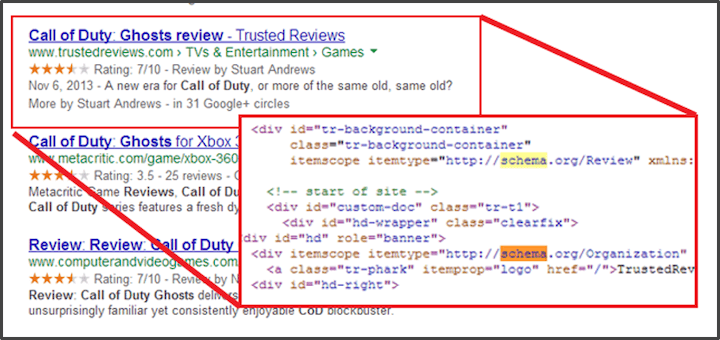Schema Markup: SEO with Structured Data from Schema.org
Bold Schema Markup: The Key to Boosting Your SEO
Are you tired of your website getting lost in the vast sea of search results? You've probably heard about the importance of SEO, but have you considered the power of schema markup?
In this article, we'll dive into the world of schema markup and explore how it can give your website the much-needed boost it deserves.
Here's a quick summary of what you'll learn:
- What is schema markup and why it's crucial for SEO
- Different types of schema markup you can use
- Step-by-step guide to implementing schema on your website
- How schema markup can improve your click-through rates and search engine visibility
So, buckle up and get ready to unlock the secrets of schema markup!
![]()
What is Schema Markup and Why Should You Care?
Picture this: You're planning a night out with friends, and you search for "best Italian restaurants near me."
The search results show a bunch of websites, but some listings stand out with extra information like ratings, prices, and opening hours. That's schema markup at work!
Schema markup is a form of structured data that helps search engines understand the content on your website better. It's like giving them a cheat sheet, making it easier for them to display relevant information in search results.

Types of Schema Markup and Their Uses
Just like there are different types of restaurants, there are various types of schema markup you can use, depending on the content of your website.
Here are some of the most common ones:
- Local Business Schema: Perfect for businesses with physical locations, like restaurants, stores, or service providers. It provides information like address, opening hours, and reviews.
- Product Schema: Ideal for e-commerce websites, it displays product details, pricing, and availability.
- Article Schema: A must-have for blogs and news websites, it highlights information like the author, publication date, and headline.
- FAQ Schema: Allows you to showcase frequently asked questions and their answers directly in search results.
And that's just the tip of the iceberg! There are schemas for recipes, events, job listings, and more.

How to Implement Schema Markup on Your Website
Implementing schema markup might sound like a daunting task, but fear not! We've got you covered with this step-by-step guide:
- Choose the Right Schema Type: Start by identifying the most relevant schema type for your website's content.
- Mark It Up: There are three main ways to add schema markup to your website: Microdata, RDFa, and JSON-LD. JSON-LD is the recommended format by Google, as it's easier to maintain and update.
- Test and Validate: Use Google's Structured Data Testing Tool to ensure your schema markup is error-free and follows the guidelines.
- Monitor and Optimize: Keep an eye on your search engine performance and make adjustments to your schema markup as needed.

The Benefits of Using Schema Markup for SEO
Now that you know how to implement schema markup, let's talk about why it's so important for your SEO efforts:
- Rich Snippets: Schema markup can lead to rich snippets in search results, which include additional information like ratings, prices, or images. These rich snippets can significantly improve your click-through rates.
- Better Understanding: By providing structured data, you're helping search engines understand your content better, which can lead to higher rankings and more relevant traffic.
- Competitive Edge: While many websites still haven't embraced schema markup, early adopters can gain a significant advantage over their competitors.

The Future of Schema Markup and SEO
As search engines continue to evolve, the importance of schema markup is only going to increase.
Google, Yahoo, and Yandex are already using structured data to enhance their search results, and it's likely that other search engines will follow suit.
By staying ahead of the curve and incorporating schema markup into your SEO strategy, you'll be well-positioned to take advantage of these new developments and ensure your website stays relevant and visible in an ever-changing digital landscape.
Outsourcing Your Schema Markup Implementation
If the thought of implementing schema markup on your own sounds daunting, don't worry! You can always outsource this task to professionals like Brandoze, the #1 company for all your SEO needs.
Their team of experts will ensure that your schema markup is implemented correctly and optimized for maximum impact, saving you time and effort while boosting your search engine visibility.

In Summary:
- Schema markup is a form of structured data that helps search engines understand your website's content better.
- There are various types of schema markup, such as Local Business, Product, Article, and FAQ schemas.
- Implementing schema markup can lead to rich snippets, better search engine understanding, and a competitive edge.
- While adding schema markup may seem complex, following a step-by-step approach and using tools like Google's Structured Data Testing Tool can make it more manageable.
- Outsourcing your schema markup implementation to a reputable company like Brandoze can save you time and ensure it's done correctly.
Don't let your website get lost in the sea of search results.
Embrace the power of schema markup and watch your click-through rates and search engine visibility soar!
Remember, a little extra effort can go a long way in the ever-evolving world of SEO.

Key Takeaways:
- Schema markup is structured data that helps search engines understand your content better
- Use relevant schema types like Local Business, Product, Article, and FAQ schemas
- Implement schema markup correctly by following guidelines and using testing tools
- Schema markup can lead to rich snippets, better rankings, and a competitive edge
- Stay ahead of the curve by incorporating schema markup into your SEO strategy
- Consider outsourcing schema markup implementation to experts like Brandoze

FAQ
What is schema markup?
Schema markup, also known as structured data markup, is a form of microdata that you add to the HTML of your web pages. It helps search engines like Google understand the content and context of your website better.
Why is schema markup important for SEO?
Schema markup is crucial for SEO because it allows search engines to display rich snippets with more detailed information in the search results. This can improve your click-through rates and visibility, ultimately boosting your SEO efforts.
What are the different types of schema markup I can use?
There are various types of schema markup you can use, depending on the content of your website. Some common examples include local business schema, product schema, article schema, FAQ schema, and recipe schema.
How do I implement schema markup on my website?
You can implement schema markup on your website using three main formats: Microdata, RDFa, or JSON-LD. JSON-LD is the recommended format by Google. You can either add the markup manually to your HTML or use a structured data markup helper tool.
Why is using schema markup from schema.org so important?
Schema.org is a collaborative project that provides a standardized structured data vocabulary for webmasters to use. Using schema.org markup ensures that search engines can reliably understand and interpret the structured data on your web pages.
How can I add schema markup to boost my SEO?
To add schema markup and boost your SEO, first, identify the right schema type for your content. Then, use tools like Google's Structured Data Testing Tool to validate your markup and test your schema. Finally, monitor your search engine performance and optimize your schema markup as needed.
Should I use schema markup or structured data markup?
Schema markup and structured data markup are essentially the same thing. They both refer to the process of adding code to your web pages to help search engines understand the content and context better.
What is the best way to implement schema.org's structured data vocabulary?
The recommended way to implement schema.org's structured data vocabulary is by using JSON-LD, a lightweight and easy-to-maintain format that works well with existing HTML.
How do I choose the right schema type for my content?
To choose the right schema type for your content, consider the type of information you want to highlight in search results. For example, if you have a local business, you would use the local business schema type to display your address, opening hours, and reviews.
Can microdata and RDFa be used for schema markup?
A: Yes, both microdata and RDFa can be used to implement schema markup on your web pages. However, JSON-LD is the recommended format by Google due to its simplicity and flexibility.
Where can I find examples of schema markup code?
You can find examples of schema markup code on the official schema.org website, as well as various online resources and tutorials. Additionally, Google's Structured Data Markup Helper tool can help you generate the appropriate code for your website.






